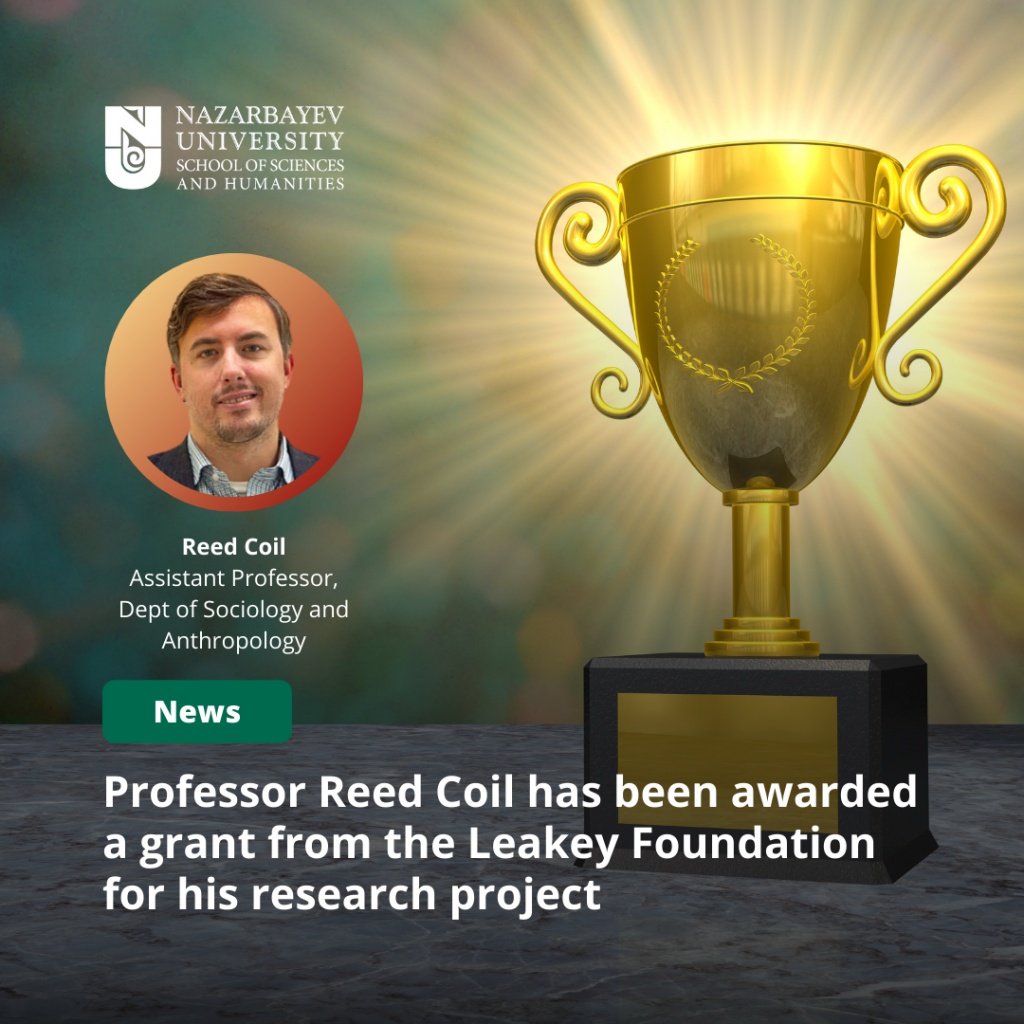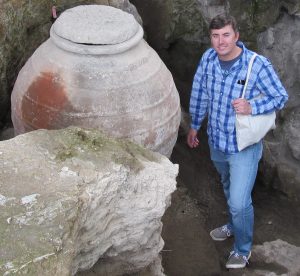Professor Reed Coil has been awarded a grant from the Leakey Foundation for his research project

Professor Reed Coil from Sociology and Anthropology Department received the Leakey Foundation Research Grant for a project at two caves in West Georgia, Tsutskhvati and Sakazhia, that contain archaeological sites spanning the Middle and Upper Paleolithic periods (~100,000 – 10,000 years ago).

“Our interest in these sites is to understand the transition from one period to another, i.e. when Neanderthals left the region or died out and when modern humans came into the region and replaced them. So far, there is no evidence that these two human groups interacted with one another here, so there was a short delay between the last Neanderthals and the first humans who migrated into the area.
The project will investigate the faunal remains (animal bones) at the site and the 3D site maps to understand changes in subsistence patterns, prey selection, diet, and spatial organization from one human group to the other. This will give us a better idea of how humans and Neanderthals were different in terms of behavioral and subsistence patterns and, perhaps more interestingly, how their behavior was similar. There are many antiquated notions that Neanderthals were quite primitive in behaviors and cognition, but we now see through DNA that our species interbred with them over the past hundred thousand years and some of our technologies and behaviors were remarkably similar. The genetic legacy that remains in our species has revolutionized the way we view Neanderthals and our project aims to supplement the wide body of knowledge on this important transition with a few sites that have rich archaeological deposits from both species and time periods” says professor Coil.
The grant is for $11,410 and will cover two field seasons of travel and lodging in Tbilisi and at the field sites for the research team.
The Leakey Foundation exclusively funds research related to human origins. Priority of funding is commonly given to exploratory phases of promising new research projects that meet the stated purpose of the Foundation. For more information follow the link.



